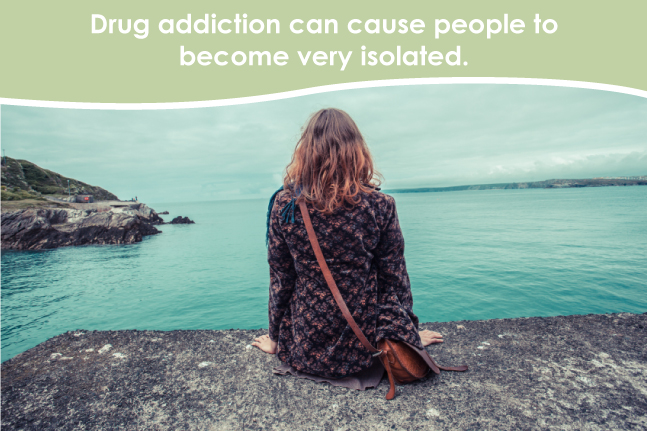Are You Resisting Meth Addiction Treatment?
There is a reason that humans tend to focus more heavily on negative experiences than they do on positive ones. Negative events trigger the brain to believe there is danger present. This pattern can make it very hard to focus on the positive when faced with obstacles, negativity, or challenges.
People often face resistance and difficulties in recovery. Meth addiction treatment takes work; it’s not an easy process. And, often the resistance is coming from within. So, it is important to have coping strategies that allow you to move ahead.
Resistance in the Home
When there is meth addiction in the family, home isn’t where the heart is. Instead, it is a hotbed of arguments, tensions, opposition and meth paraphernalia. When your home is a place with resistance to efforts to treat methamphetamine abuse, it is very hard to refocus energy and attention on your sobriety and health. As a replacement, you focus on your shortcomings and failing and this causes you to oppose meth addiction treatment.
Resistance in the Workplace
The stigma against addiction remains firmly in place. Employers should certainly support employee efforts to seek a center that will treat methamphetamine abuse (in place of firing or replacing them), that may not be the case in your life.
Often people who need to enter meth addiction treatment face opposition at work. If you feel like you might miss a promotion or opportunity or will be fired if people discover you need meth addiction treatment, you will resist treatment.
Resistance from Others
There will always be people who want to undermine your confidence. They may be resentful or jealous. They may even be afraid. These people may use their words to stop you from entering meth addiction treatment, but they may also use actions. Fear of these situations can cause you to doubt yourself and treatment.
Lots of People Enter Meth Addiction Treatment; Treat Methamphetamine Abuse Without Feeling Isolated
It is often natural to get locked into the idea that you are alone in facing the struggles of meth addiction. You may believe no one could possibly relate. You are correct that no one has lived exactly the same life that you live, but there are plenty of people who have experienced the same trauma, struggles, obstacles, and fears.
The Treatment Episode Data Set conducted by the Substance abuse and Mental Health Service Administration reports 8.1 percent of admissions to facilities that are licensed or certified by State substance abuse agencies were people seeking meth addiction treatment. Those people all know what it is to grow addicted to meth and to need to treat methamphetamine abuse.
Addiction Is Not an Irregularity
Every person in society has the potential to become addicted to meth. There are no boundaries it does not cross, including:
- Nationality
- Socioeconomic status
- Education
- Race
- Gender
It is estimated that 10 percent of Americans have a substance use disorder. For perspective, only 7 percent of people in the US have diabetes. Think of that 10 percent; that’s 1 in 10 people.
You Aren’t Alone
Most addicts feel intensely lonely. Even people with a ton of friends who attend many social gatherings can feel that they are different, don’t belong, or are alone.
There are many people who feel this way. You must recognize that many other people also have the same sensations of self-doubt. Once you can do this, you can start to let go of your feelings of isolation. In meth addiction treatment, you can create a network of true friends to attend sober gathering with.
You Are More Than Your Meth Addiction
The stigma of addiction makes meth addicts feels like they are defined by their addiction. They may define themselves by the terms addict and junkie. People outside of you may act like meth addiction is your choice. But, you are much more than a meth addiction. Your life is more than meth. You are important. It’s time to treat methamphetamine abuse.
How Do You Treat Methamphetamine Abuse in the Older Population? Helping an Addicted Parent into Meth Addiction Treatment
So often the narrative associated with addiction involves the parent motivating the child to seek a facility that will treat methamphetamine abuse. They desperately look for help. However, there is an overlooked situation: adult children urging parents and grandparents into meth addiction treatment.
Why Is Addiction Prevalent in the Older Population?
A lot of people grow up with parents who are addicts, but others live a fairly traditional life that isn’t marred by meth addiction until their parents grow older. There are a number of circumstances that arise in a person’s later years that drive them to seek meth in order to cope. These can include:
- Losing friends
- Loss of mobility
- Empty nest syndrome
- Death of partner
- Serious illness of partner
- Increase in physical pain
- Stress related to retirement
- Loneliness
Regardless of the cause, meth use has a detrimental impact on health that tends to be more severe when the users are older.
Approach Them with a Game Plan
You should speak to an addiction treatment specialist, mental health professional or addiction counselor before you approach your parent or grandparent about their meth use. After all, these people treat methamphetamine abuse. Navigating the process of getting your family member into meth addiction treatment will be easier when you have expert support.
Find an Appropriate Time
Attempting to address meth use with a parent or grandparent depends on timing. You need to approach them during a time where they don’t appear to be acutely high. This will increase the chance that they are more focused on what you are saying and more receptive to hearing it.
Listen
You might feel like you should do all of the talking because you are the one advocating they treat methamphetamine abuse, but you need to listen to what they have to say. They want to be heard. Letting them vent helps both of you focus on what matter and how to achieve your goal.



